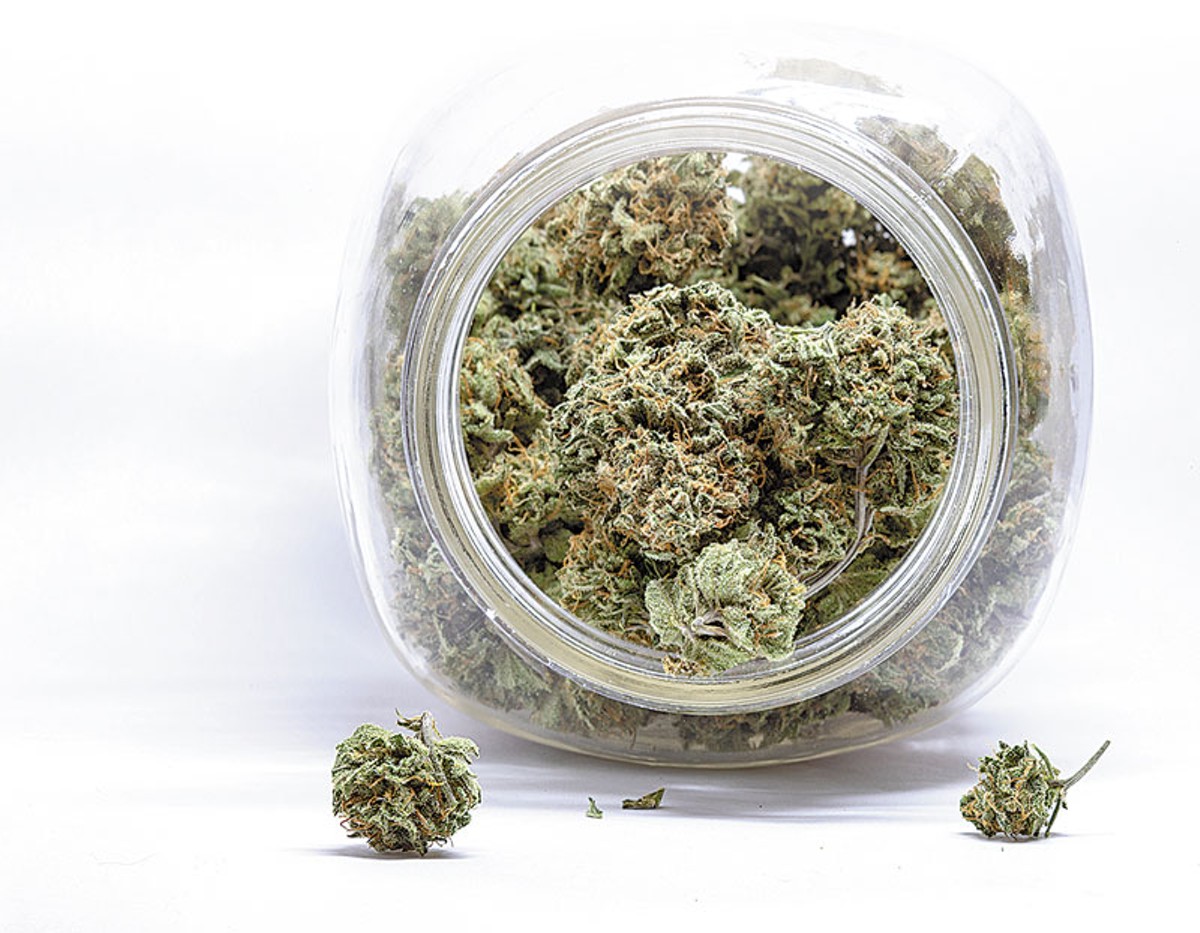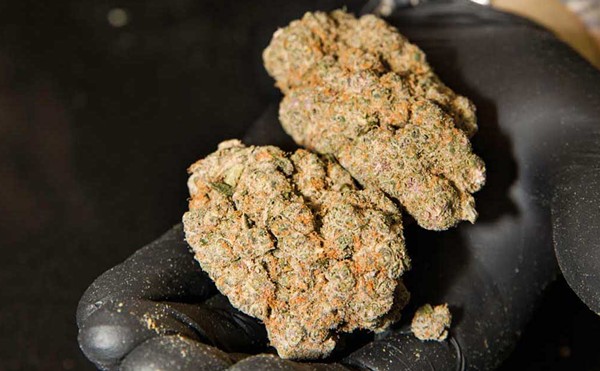Little has changed since adult use marijuana became legal in Michigan. It seems that the folks who wanted some in the first place have what they always had, and the folks who didn't want any don't. The folks in Lansing are still wrangling about it. We still don't have stores where we can buy it, and so on.
I had a discussion with a woman the other day about smoking in a private foyer where you could be seen from the street. Was that OK to do? You are in a private place and it's not your fault if someone is peeping in at you. These kinds of discussions are popping up as we parse just exactly what is going to be OK to do as a formerly underground activity comes to the light of day. There is an Inner Circle lyric that seems to capture the mood:
Tired fe lick weed in a bush
Tired fe lick pipe in a gully
We want to come out in the open
That's the same yearning that led to the legalization tide that just swept across Michigan. Things are coming out in the open. The most significant change may be that people of all kinds want to know more. They want to know more about the law; they want to know more about marijuana. Even people who oppose marijuana are becoming curious about what we're dealing with.
Doctors who formerly wouldn't recommend marijuana to their patients are changing their minds. Dr. Nina Robb of Integrity Medicine says that she has seen a recent uptick in patients who are sent by their doctors who previously weren't open to the idea.
That's good. Information breeds familiarity and over time marijuana will not be the bogeyman under the bed. It'll be the bud in a jar on the counter.
Provisioning centers update
The situation with medical marijuana provisioning centers is fluid and a mystery. Recently announced news from the state Medical Marihuana Licensing Board is that licensed provisioning centers may sell marijuana and products originating from caregivers through the month of January, provided it was tested at a licensed testing facility. Growers and processors can continue to get product from caregivers through Feb. 28.
Also, the judge's order keeping the MMLB from shutting down unlicensed facilities before the end of the year is still in effect. And so far there is not a peep of what is going to happen with that on Jan. 1, 2019.
The MMLB has finally been cranking out enough licenses so that it seems that in a few months there will be a functioning and sufficient supply system in place. After its Dec. 7 meeting, the MMLB has licensed a total of 91 medical marijuana facilities, 45 of them provisioning centers. There is another meeting scheduled for Dec. 21. If the board can crank out as many licenses as it did in the previous meeting, then we're starting to get somewhere.
Notably, at the Dec. 7 meeting the board denied former Detroit Lions Calvin Johnson and Rob Sims licenses based on their lack of integrity. Apparently Johnson had outstanding traffic citations from four and nine years ago, and Sims had some minor legal issue with some property he owns. Both of them cleared up their issues and intend to appeal the decisions. This again highlights the tough process to get a marijuana business license in Michigan. MMLB member and former state police officer Don Bailey was in the news talking about the rejection of Johnson's and Sims' applications. He's been the main person on the board in rejecting applications.
At the Dec. 7 MMLB meeting, he opposed the resolution to allow provisioning centers to buy product from caregivers. He noted that there are people who are incarcerated and convicted for the same activity. The guy just can't stop being a cop. Too bad this guy's term on the board doesn't end for another two years.
Traffic report
According to a survey of various police agencies conducted by the Canadian press, law enforcement did not see a spike in cannabis-impaired driving after adult use was legalized in that country in October. It's a small sample since legalization, but so far it appears impaired driving is not on the rise. In relation to this subject, which is very serious, I noted that outgoing Colorado Gov. John Hickenlooper recently said that they hadn't seen a spike in people driving high.
I note this because I recently had a conversation with a person who is in training to be a state police officer. This person says that there has been an increase in driving while high and accidents with stoned drivers. When I mentioned Hickenlooper's comments, my debate opponent said that some police database that was more reliable than the governor said the opposite.
So I'm intrigued. Where does the truth lie? Is the governor propagating a falsehood? Are the governor and the police somehow comparing apples and oranges, and they are both right? Obviously, it's important for police to be able to accurately tell when someone is driving under the influence. In fact, that is being worked on now as several products to deliver the information are bumping around in the marketplace.
The bigger question is being able to tell what level of blood THC constitutes being under the influence. That's where the debate really lies and that's where our debate fell apart. What is the standard? What should it be?
Here's a correction: I reported that cannabidiol (CBD) has been reclassified as Schedule 5 — the least restrictive classification — of the Controlled Substances Act by the Food and Drug Administration. That is incorrect. I admit I don't understand the details of how this works, but it is only the drug Epidiolex, which is made from marijuana-derived CBD, that has been placed on Schedule 5. CBD in general is still a Schedule 1 drug. In June the FDA approved Epidiolex for treatment of seizures associated with two rare forms of epilepsy. Epidiolex is the first and only FDA-approved drug with extract from the actual marijuana plant. Marijuana and CBD derived from marijuana are still against the law under federal statutes.
Epidiolex is made by the British corporation GW Pharmaceuticals. As weird as the scheduling of Epidiolex without rescheduling CBD seems, it is the first crack in the armor of the FDA claim that marijuana has no medical use.
GW also makes Sativex, which is THC derived from marijuana. Sativex is used to treat the side effects of chemotherapy and symptoms of MS. It's sold in 26 countries but not in the United States. Marinol, a synthetic THC, is used here, although patients report preferring Sativex over Marinol.
Stay on top of Detroit news and views. Sign up for our weekly issue newsletter delivered each Wednesday.







